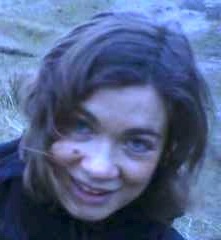Copyright for Librarians is a free course designed to inform librarians about copyright law, especially the aspects that most affect libraries. It has current information that has been field tested with international librarians on the following topics: Copyright and the Public Domain, The International Framework, The Scope of Copyright Law, Rights, Exceptions, and Limitations, Managing Rights, Creative Approaches and Alternatives, Enforcement, Traditional Knowledge, and Activism.
It is a joint project of the Berkman Center for Internet & Society and Electronic Information for Libraries (eIFL), a consortium of libraries from 50 countries in Africa, Asia and Europe.
Minow: How did the copyright for librarians project start?
Dulong de Rosnay: eIFL.net came up with the project and contacted the Berkman Center to develop the course. The purpose was not only to teach librarians about copyright law in general, but also to raise awareness about problems that copyright create for librarians, especially in transition and developing countries, and about possible ways for librarians to change it at the national and international levels.
We started by collecting user requirements and expert advice to define the content focus and the distance learning methodology. Developing a course which might be self-taught raises design challenges besides the difficulties of providing an international overview of copyright which varies among countries.
A large team drafted and edited the course material, which was tested at two occasions by librarians: first, during a training at the Mortenson Center for International Library Programs at the Library of the University of Illinois at Urbana-Champaign and then during a seminar at the East African School of Library and Information Science at the Makarere University in Uganda.
Minow: What exactly is the “Rotisserie”? Is that a model you found elsewhere?
Dulong de Rosnay: The Rotisserie is a distance learning platform which was developed at the Berkman Center and used to accompany many courses. It allows educators to send assignments to a group of enrolled participants, who are then prompted to comment upon their peers’ answers. It is a useful complement to the course material, as it can host group discussions following the individual study of the modules. However, the course is not linked to the Rotisserie and can be implemented on any platform, or used without additional technology.
Minow: How do you plan to keep the course up-to-date?
Dulong de Rosnay: The sustainability of the project is indeed very important. It is expected that users will provide feedback on the course and maybe translate, adapt and develop the material which is licensed under a Creative Commons Attribution license allowing anyone to reuse it. At the end of each module, we include participatory homework based on the librarians’ local experiences and current legislation for their countries. The goal is to use this material to develop future versions of the course. An additional phase of the project would most likely be necessary to edit contributions and update the material.
[*] Dr. Melanie Dulong de Rosnay is a researcher in law and information science working on open licencing. A fellow at Science Commons when working on the Copyright for Librarians project at the Berkman Center, she co-founded Creative Commons France.
Mary Minow is Executive Editor of the Stanford Copyright and Fair Use Website.

